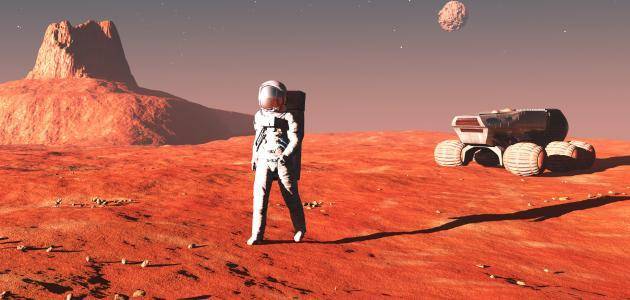The MAVEN spacecraft from NASA has discovered some water molecules in the upper atmosphere of Mars, where hydrogen and oxygen atoms have been stripped away, according to researchers in a study published in the journal Science.
Planetary chemistry researcher Professor Shane Stone from the University of Arizona in Tucson states, "This completely changes the way we thought hydrogen, in particular, was lost to space. Mars' surface was formed by the flow of water, but the planet today is a barren desert. Previously, scientists believed that Mars' water disappeared at a slow and steady flow, as sunlight breaks down and evaporates water in the lower atmosphere, leading to the gradual transfer and dispersion of hydrogen into the upper atmosphere of Mars." However, the MAVEN spacecraft, which has been orbiting Mars since 2014, collected water molecules in Mars' ionized atmosphere at an altitude of about 150 kilometers, which was truly surprising, as the highest area where water molecules were previously observed on Mars was only at an altitude of 80 kilometers.
It's noteworthy that concentrations of these water molecules fluctuated with seasonal changes on Mars, peaking during the southern summer when seasonal dust storms are more common. During a global dust storm in 2018, water levels spiked higher, indicating that dust storms elevate water in a "sudden scattering," according to Professor Stone. Moreover, it is important to mention that the upper atmosphere of Mars is filled with charged particles prepared for rapid chemical reactions, especially with water molecules. Therefore, water breaks down rapidly there, averaging just four hours before hydrogen atoms float away in the atmosphere. This process is ten times faster than the previously known methods by which Mars loses water.
Additionally, the researchers found that this process could explain Mars' loss equivalent to a global ocean 44 centimeters deep over the past billion years, plus another global ocean 17 centimeters deep during each dust storm. However, this cannot fully account for Mars' total water loss, as scientists believe these discoveries are just the beginning.




